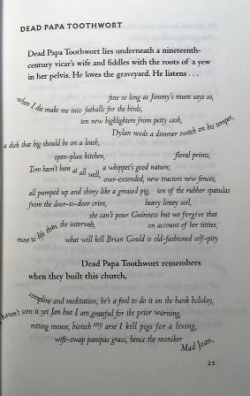It’s interesting how greatly our reaction to books is defined not always by the book as it stands, but by the book we are looking to find.

Of all the novels on this year’s Gordon Burn longlist, Lanny is probably the most beloved by readers and I can see why. Max Porter has a poet’s ear for language. In spite of the bleakness of certain sections, the book as a whole is big-hearted and ultimately positive in its outlook. The action takes place within an enclosed rural community we feel we come to know – as readers, we are drawn into this community, we feel ourselves become a part of it, for better or worse.
All of the above could equally be said of another novel, Jon McGregor’s Reservoir 13. Perhaps because of the similarity of their conceit, I found myself constantly comparing the two and for me at least, Lanny loses out – definitively – at every juncture.
The wonder of Reservoir 13 lies in the depth it accrues – the multi-layered, undramatic reconstruction of lived reality, the genuine ambiguousness of many of the characters – characters we come to know only gradually, characters who might easily be us. Lanny is too brief an exercise – too studied – for its ecosystem to properly evolve. Even as the language of their thoughts is beautifully evoked, its characters shade towards stereotype. I hate to say it, but Lanny the golden child feels as if he belongs in another novel – Harry Potter, for example. The book might have worked better – and again, this probably says more about me as a writer than it does about the novel – if Lanny had been some more typical little toerag, ruining his neighbours’ vegetable patches playing Bravo Two Zero or spraying obscene graffiti on the village hall.
As it was, I didn’t believe in him. God preserve me from whimsy.
Part 3 of the novel, that too-tidy resolution, feels altogether too swiftly arrived at, and entirely unearned. Part 2 was much more satisfying. If anything, the novel needed to be longer. It needed to dig in more. It needed to have the courage of its original convictions. Max Porter has spoken eloquently of how Lanny began life as a long poem and I think the bones of that original conception – more abstract, more lyrical (and yes, the Lanny of the poem – when it’s just him and Pete – is entirely conceivable as a character and as a poetic being) – show through too starkly, without ever showing through enough to deliver the rigour this project demanded.
Has ambition, lacks depth, too woolly. It’s not him, it’s me.